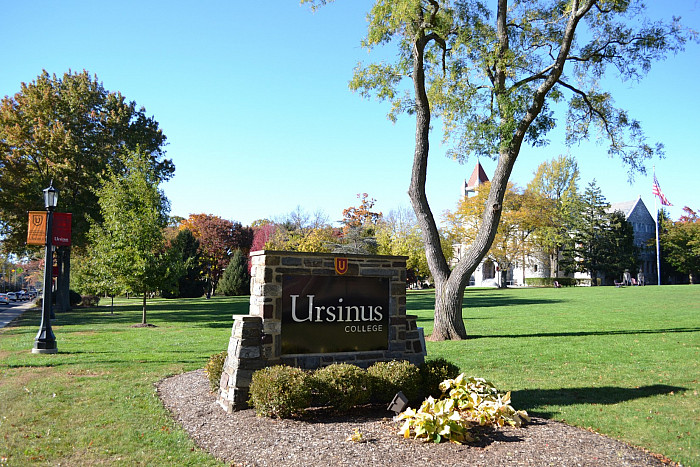Virtual Community Conference Explores Invisible Barriers
The conference provided an opportunity to learn from students, faculty, and staff how to combat the invisible barriers that affect all populations and was another step in Ursinus’s ongoing commitment to becoming a more inclusive, accepting, and empowering campus.
The annual event, sponsored by the president’s office and organized with the help of the community conference committee, is usually held in August, prior to the first day of classes. Due to the ongoing COVID-19 pandemic and our campus’s health and safety requirements, the conference was moved to January and held in a virtual environment. This year also marked the first time that the entire student body was invited to attend.
During the opening session, members of the Ursinus community spoke about their personal experiences in overcoming barriers to find success.
Reflecting on the challenges facing Ursinus and higher education as a whole, Dean Mark Schneider described college as a microcosm that displays not only the failures of our broader society, but also one that provides a model for what a more equitable society might look like. He noted that “students from all backgrounds will take their experiences and become change agents in the broader world.”
Heather Lobban-Viravong, vice president for college and community engagement, said, “This is not a start, it is a continuation. As a community, we need to be more awake to the experience of others. The conversation here today pushes us to think about what we mean when we say we are a community. We owe it to each other to ask ourselves these questions.”
Professor of Theater Domenick Scudera was a member of the planning team and echoed the sentiment. “A community that values and respects each individual within that community must join together to talk through issues of importance and to share diverse perspectives,” he said. “The community conference allows us to do just that.”
The featured speakers, Associate Vice President for Advancement Ava Willis-Barksdale and Associate Professor of English Rebecca Jaroff, reflected on their personal experiences and how they shaped their college hopes and experiences.
Assistant Dean of Students Terrence Williams introduced the breakout sessions, which were facilitated by faculty and staff covering the topics of race and ethnicity, gender and sexuality, religious diversity, class and poverty, and difference of ability. In order to explore both shared and new experiences, participants were encouraged to join one breakout session room that was most significant to their identity or experiences, and another that was outside of their typical experience.
The entire group then reconvened to discussion each session. Scudera served as one of the small group facilitators. “I was pleased to see that, at this year’s conference, participants included faculty, staff, and students. Each of us has a different way of viewing Ursinus and our shared experience on our campus. To build a stronger community, we must share those views periodically to learn from each other, and to promote empathy,” he said.
After the event, Willis-Barksdale observed, “The conversations about various identities and intersections between them were rich. It was marvelous to have students involved. We must continue to talk about and think about these very important topics. Otherwise, we will never do anything about them as we, hopefully, forge better circumstances for the future.”
More events and activities to prompt discussion are planned for the rest of the semester.
“If we fail to address these questions, we will fail to be an engine of social mobility, and instead reinforce, even amplify the inequities of our society,” Schneider said.
